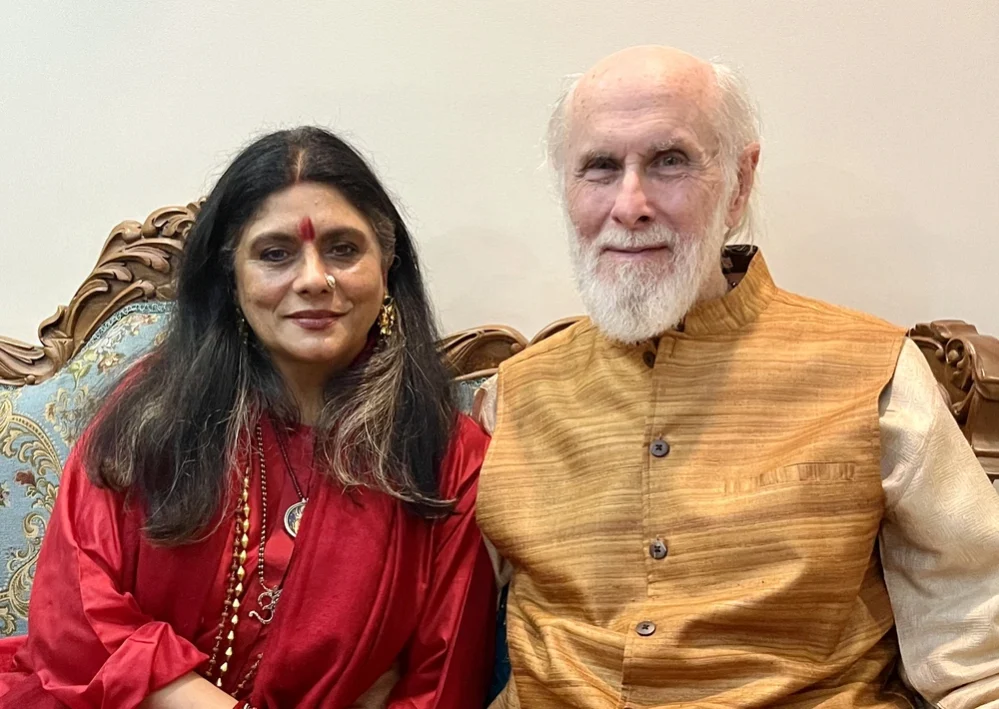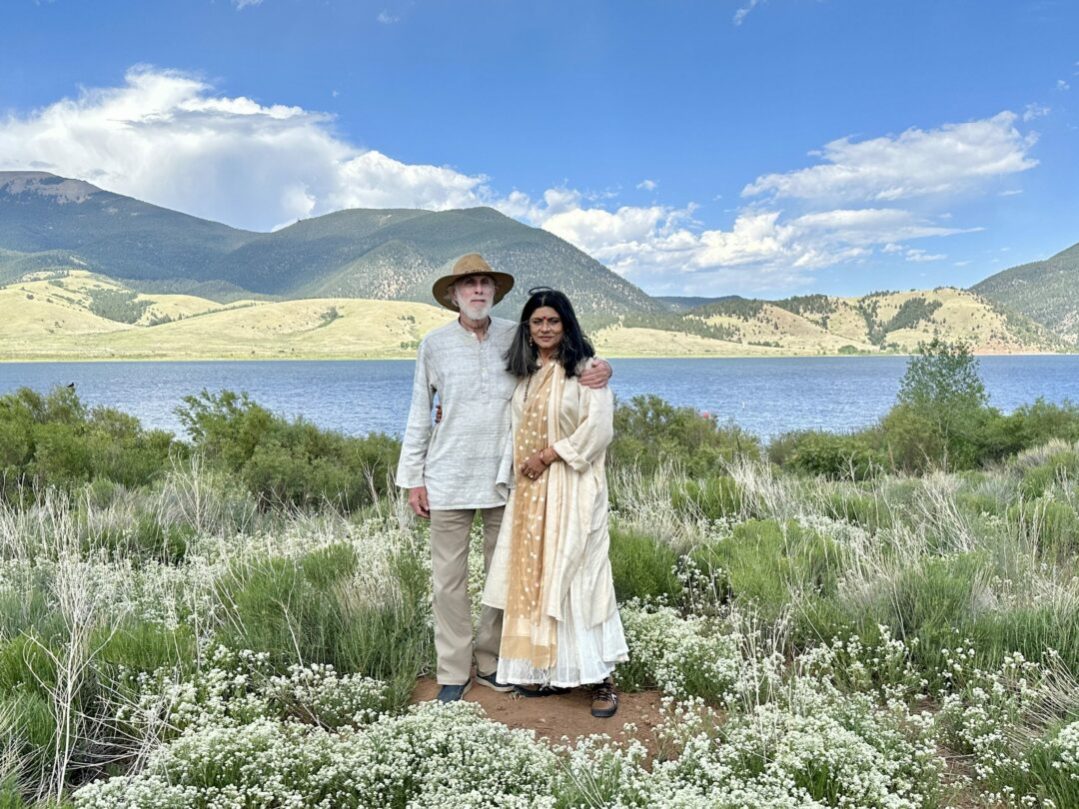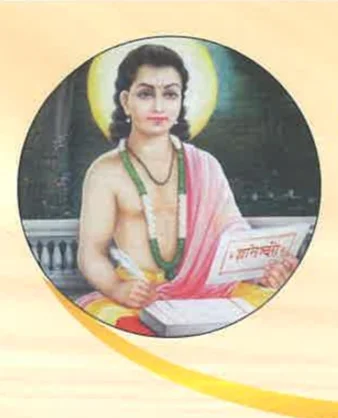
Dr. David Frawley to Receive Prestigious 2026 Bhishma Award
We are proud to share that Vedacharya Dr. David Frawley has been named the recipient of the BHISHMA
Dr. David Frawley (Pandit Vamadeva Shastri) is a Vedacharya and one of the leading exponents of Vedic knowledge in an interdisciplinary approach worldwide. The American Institute of Vedic Studies serves as a vehicle for his work, offering on-line access to go along with his many published writings.
His work is highly esteemed by numerous students and followers as well as by many organizations worldwide – he was awarded India’s prestigious Padma Bhushan award in 2015 for his distinguished service to the nation! He also has a National Eminence Award from the South India Education Society (SIES)
With a D. Litt (the highest possible degree in Yoga & Vedic sciences) from SVYASA and a second D.Litt from Ram Manohar Lohia University, Dr Frawley’s commitment to education shines through with online courses available at the American Institute of Vedic Studies on top of over 50 extensively published books sold the world over.
Dr. David Frawley has been one of the main pioneers in introducing Ayurvedic medicine to the western world, as well as Jyotisha (Vedic astrology), the deeper aspects of Yoga and Vedanta, and the yogic interpretation of the Vedas. He is the most honored Vedacharya or Veda-Guru coming from the western world and teaching widely in India as well as worldwide over the last forty years.
Dr. David Frawley has a D. Litt. (Doctor of Letters), the highest educational title possible in the field of Yoga and Vedic sciences, from SVYASA (Swami Vivekananda Yoga Anusandhana Samsthana), the only deemed Yoga university recognized by the Government of India. He has a second D. LITT. from Ram Manohar Lohia Ayodhya University, Uttar Pradesh that was given to him by the governor of Uttar Pradesh. He has a National Eminence Award from the South India Education Society (SIES), affiliated with the Kanchi Shankaracharya Math, which has only been given to about fifty educators over many decades, including many important gurus in India, with Vamadeva as the only western born teacher to receive this award.
In India, Vamadeva’s translations and interpretations of the ancient Vedic teachings from the original Sanskrit have been acclaimed in both spiritual and scholarly circles. He has worked extensively teaching, writing, lecturing, conducting research and helping establish schools and associations in related Vedic fields worldwide over the last four decades.
In addition, he writes regularly for various publications and the social media on educational issues and the importance of Vedic knowledge, extending to many India educational centers and India television and to numerous Vedic schools and organizations internationally).
Vamadeva received a Pandit award as part of a special Brahmacharya Vishvanathji yearly award in Mumbai in 1994. His role as a pandit and Vedic teacher (Vedacharya) has been honored by many groups in India. These include Swaminarayan (BAPS) internally, Sri Ramanashram (Ramana Maharshi), Sri Aurobindo Ashram, Arsha Vidya Gurukulam (Swami Dayananda), and the Chinmaya Mission (Swami Mitrananda), Shringeri Shankaracharya Math and Kanchi Shankaracharya Math. Such a traditional title as a Pandit and Vedacharya implies having written and taught on the four Vedas and Upanishads, which Vamadeva has done in his many Vedic books that include original translations from the Sanskrit, starting with the most ancient Rigveda.
Our teachings are rooted in the great gurus we have followed, which we will share with you. We are part of important Guru-Shishya Paramparas, with several great guru lines.
Our main influence since 1970 has been the teachings of Bhagavan Ramana Maharshi and the tradition of Advaita or Non-dualist Vedanta that he was connected to going back to Adi Shankara and the Upanishads.
We visited the Ramanashram many times over decades, wrote a number of articles for their Mountain Path publication, and hav spoken before their centers in India and the West, studying and practicing Bhagavan’s teachings as the basis of our sadhana.
Most importantly we received Ramana’s presence and teaching into our lives at various visions and experiences at the ashram, the Tiruvannamalai temple, and the Arunachala mountain.
Yet our connection with Ramana developed another special dimension to it. We came into contact with the teachings of Kavyakantha Ganapati Muni (1878-1936), the chief disciple of Ramana, through K. Natesan, one of his great disciples.
Ganapati wasthe greatest Sanskrit writer of modern India and a Raja Yogi of the highest order, for whom all the secrets of Kundalini and the chakras, as well as the depths of Advaita, were on the tip of his tongue expressed through his mantric powers. His teachings have greatly influenced us.
K. Natesan (1912-2009) had been with Ramana since the age of 12 and with Ganapati since the age of 18, with regular contact with both. He received a special mission to preserve through Ramana and Ganapati to carry on Ganapati’s works, from his Sanskrit renderings of Ramana’s teachings to his vast studies that included Yoga, Vedanta, Ayurveda and Jyotish, revealing the secrets of the Vedas along with Shakti Sadhana and a new vision of India and humanity. Since first meeting him in 1991 to the time of his passing, I shared these teachings and took them up, as they resonated with my own ongoing sadhana and teachings that already included Yoga, Vedanta, Ayurveda, Jyotish and Vedas, with views similar to Ganapati.
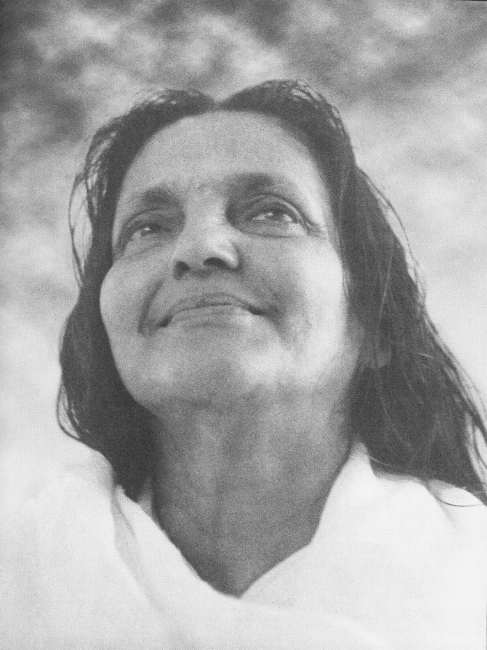
From 1976-1982 I was blessed to be in correspondence with Sri Sri Anandamayi Ma (1896-1982), the bliss-permeated Mother, perhaps modern India’s most honored woman guru, through her disciples Swamis Atmananda and Nirvananda. I also wrote for her publication Ananda Varta.
Ramana was my spiritual father and Anandamayi Ma was my mother. Ma inspired me inwardly and encouraged my Vedic research, Yoga and Vedantic contemplations. She encouraged me to have full faith in my Vedic Work and share it with all, and affirmed my connection with Ramana Maharshi.
Her continued communication aided in building my confidence in approaching such profound teachings from distant India.
She said I should never doubt my path or my work in the Vedic field and that she would always be with me, but should have full confidence in my Vedic mission, though I was only a young American in my late twenties.
Since discovering his teachings in 1970, Sri Aurobindo has remained a primary influence in our work.
In 1979 I met Sri MP Pandit (1919-1994), then Secretary of the Sri Aurobindo Ashram in India, who began publishing my Vedic research in various ashram publications and books in India in 1980-1986, including many translations from the Rigveda and Yajurveda, who also encouraged my writings overall and my Vedic mission. Over a 500 pages of my Vedic writings on Rigveda and Yajurveda appeared in various Sri Aurobindo publications like World Union. Besides connecting me with the influence of Sri Aurobindo, he brought to me the teachings of the Mother at the Sri Aurobindo Ashram, more strongly into my life and awareness, and connected me to the teachings of his guru Kapali Shastri, who was also a disciple of Ganapati Muni.
Aurobindo’s vision of the Secret of the Vedas and the need for a new evolution of consciousness in humanity have marked my thought as well, including an integral approach to Yoga and all life as Yoga. I have been part of the International Advisory Committee (IAC) for the city of Auroville.
I met Sadguru Sivananda Murty first in Hyderabad in 1994 and remained in close contact with him until his Mahasamadhi in 2015. Guruji was the head of the Saiva Mahapeetham, a Shaivite order from Andhra Pradesh, which we joined.
He was connected to Ramana Maharshi but also to Trailanga Swami, and many important gurus and teachings of South India of an esoteric nature.
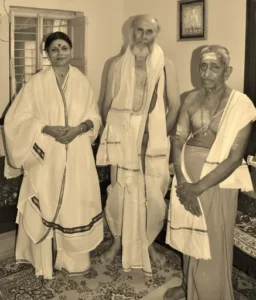
Besides Raja Yoga and Advaita Vedanta, he was adept in Jyotish, Mantra and knew the essence of Telegu culture and music, aiding in the renovation of temples. He visited the West several times and we visited him regularly at his Gurudham in Warangal and his Ashram near Vishakhapatnam. Guruji was most unassuming and accessible outwardly but held tremendous power and insight, holding many of the deeper teachings of Bharat.
Yogini Shambhavi had a special rapport with Guruji and he continues to guide her from within. He empowered her to teach others and be a guru in her own right.
The background and philosophy of the American Institute of Vedic Studies can be understood by the following presentations of Vedic Knowledge Systems, their Yogic applications, and Hindu (Sanatana) Dharma.
Dr. David Frawley (Pandit Vamadeva Shastri) is a recipient of the prestigious Padma Bhushan award, the third highest civilian award granted by the government of India, “for distinguished service of a higher order to the nation,” honoring his work and writings as a Vedic teacher, which he received in January 2015.,
With Prime Minister Narendra Modi, President Pranab Mukherjee, Vice-President Hamad Anasari, and Home Minister of India, Rajnath Singh in the center, and second to the right of Vamadeva former Deputy Prime Minister L.K. Advani. Awards for Bharat Ratna, Padma Vibhushan and Padma Bhushan. Ceremony at Rashtrapati Bhavan on March 30, 2015.
Vamadeva second from left in official group picture for the higher Padma Awards.
Vamadeva receiving the Padma Bhushan Award from President of India Pranab Mukherjee.
Below is the full citation for Dr. Frawley’s Padma Bhushan award from the government of India for his work in the fields of Ayurveda, Yoga, Vedanta, Vedic astrology, Vedic studies, Hindu Dharma and ancient India. The recommendation for this award came to him from the office of the Prime Minister, Sri Narendra Modi.
As our work is publication and web-based, you can easily connect with us through the internet or print media, including forty published books, three hundred articles, and four in depth on-line courses relative to Ayurvedic Healing, Ayurvedic Astrology, Yoga, Ayurveda, Mantra and Meditation and Integral Vedic Counseling. Each course consists of extensive course lessons, enhanced by illustrations, audios and videos.
Ayurveda – We teach the foundation of Ayurveda for wellness, right living, and countering common diseases and afflictions of body and mind. Our specific focus is on Ayurveda and Yoga psychology as addressing the complications of our high tech society, including the yogic aspects of Ayurveda, making Ayurveda relevant to all.
Yoga – we teach Raja Yoga, the approach of the Upanishads, Bhagavad Gita and Yoga Sutras, with reference to Vedanta or the Yoga of knowledge (Jnana Yoga), and an emphasis on Yoga psychology and the science of consciousness. In addition we teach the spiritual Tantric Yoga of mantras, deities, working with the subtle body, chakras, Kundalini and Shiva/Shakti energies. In this regard we integrate Yoga and Ayurveda.
Vedic astrology, Jyotish – we emphasize the astrology of healing, Vedic medical or Ayurvedic astrology, yogic astrology, mantras and deities relative to astrological remedial measures. We offer astrological consultations and teachings. We have a special knowledge of Vedic Astrology in the Rigveda, along with Secrets of the Nakshatras and the Vedic Deities.
Vedic counseling – we emphasize an integral approach combining Vedic knowledge systems of Ayurveda, Yoga, Vedanta and Vedic astrology, along with teaching the foundation of Vedic dharmic living and karmic life-management. We have been developing this new field in recent years to bring together the different aspects of our course including aspects of Vastu Shastra.
Vedic studies, ancient India and ancient history – We look back to ancient Vedic Rishi traditions going back to the dawn of history, as in the Vedic view we are but the seventh of fourteen humanities, not the first, the highest or the last. Dr. Frawley has written numerous books and articles on ancient India and the ancient world, including Yogananda’s Yuga System and the work of Graham Hancock, which we have been associated with. We research ancient traditions worldwide and connected to lokas or realms beyond the physical. In this regard, we honor all ancient, mystic, indigenous an native traditions, having studied Buddhist, Taoist and Egyptian traditions, but see the Vedas as the prime teaching for all humanity, the Eternal Sanatana Dharma. Dr. Frawley has written many books and articles on Hinduism and Sanatana Dharma, its prime teachings and resurgence today.
Vamadeva is a senior teacher of “traditional Ayurveda,” the older Vedic or Vaidya approach which incorporates Yoga, Vedic astrology, and Vedanta into its teachings.
He is working to revive traditional Ayurveda and all its Vedic and Yogic connections.
He is a “master educator in the field of Ayurveda, Yoga and Vedic studies.”
Vamadeva has helped start a number of Ayurvedic schools and organizations, and his innovative teachings on Ayurveda have been used extensively by Ayurvedic groups throughout the world, including Ayurvedic schools in India. He is recognized as one of the most important Ayurvedic teachers and acharyas today.
Vamadeva’s main teacher of Ayurveda was Dr. B. L. Vashta of Bombay and Pune (1919-1997), note photo with Vashta on the right and P.H. Kulkarni on the left. For ten years he remained under the guidance of Dr. Vashta, visiting him regularly in India.
Dr. Vashta, a graduate of one of the first Ayurveda programs in India in 1941, wrote many books on Ayurveda and helped formulate Ayurvedic products for Ayurvedic companies. Vashta was also a leading journalist in the state of Maharashtra and became an important guide for Vamadeva. Vashta taught him the value of traditional Ayurveda.
Over the years, he has done many programs with the Ministry of AYUSH in India, and with S-VYASA university, as well doing programs with Indian embassies throughout the world on Yoga and Ayurveda. He was a major figure in the first Yoga Day celebrations in Delhi in 2015.
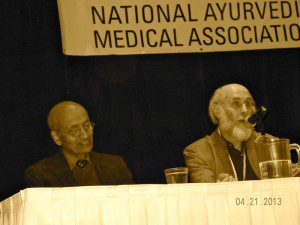
In America, Vamadeva has worked with Dr. Vasant Lad, noted Ayurvedic teacher and author. Vamadeva taught with Dr. Lad at the Ayurvedic Institute in 1983-1986. Along with Dr. Lad, he wrote the Yoga of Herbs (1986), which was the first book published integrating western herbs into Ayurveda.
Vamadeva’s main areas of specialization in Ayurveda are herbal medicine, Ayurveda and the mind, and Ayurveda and Yoga, which are only a few of his over ten books on Ayurveda..
His many books on Ayurveda including the Yoga of Herbs, Ayurvedic Healing (foreword by B. L. Vashta, 1989), Ayurveda and the Mind (1996), Yoga and Ayurveda (1999), Ayurveda, Nature’s Medicine (with Subhash Ranade, 2001), and Ayurveda and Marma Therapy (with Ranade and Lele, 2003) and Soma in Yoga and Ayurveda.
Vamadeva’s Soma in Yoga and Ayurveda (2012) is his longest and most detailed book on Ayurveda, and addresses deeper Yoga practices, including secrets of Ayurvedic herbs. His Ayurvedic Astrology integrates Ayurveda and Vedic Astrology.
His book the Art and Science of Vedic Counseling shares an integral view of Vedic knowledge synthesizing Yoga, Vedanta, Ayurveda and Vedic astrology with the background Vedic Knowledge.
Vamadeva began studying Vedic astrology (Jyotish) as part of his Vedic research in the early seventies and brought out a course in the subject in 1985.
He continues to use Vedic astrology, particularly in the context of Yoga and Ayurveda, for a deeper understanding of Vedic wisdom. Vamadeva wrote Astrology of the Seers (1990), one of the first books on Vedic astrology published in the West. This was followed by Ayurvedic Astrology (2005), which pioneers the field of ‘Ayurvedic Astrology’.
In 1992 Vamadeva helped convene the first major American Conference on Vedic Astrology, which led to the founding of the American Council of Vedic Astrology (ACVA) the following year 1993. He became the first president of the organization for ten years (1993-2003).
Yogini Shambhavi joined his work on Jyotish in 2000, providing additional teachings and consultations on this Vedic science of light, reflecting her connection with the Yoga Shakti. She now handles the Jyotish work at the Institute.
Dr. David Frawley (Pandit Vamadeva Shastri), who was given the prestigious Padma Bhushan Award by the President of India in 2015, was given another of India’s highest cultural and educational awards.
SIES (South Indian Educational Society) Sri Chandrasekarendra Saraswati National Eminence Award was given to him on Dec. 25, 2015, in a special ceremony in Mumbai.
The decision to honor Dr. Frawley as a Philosopher/Vedacharya was unanimously approved by the awards committee.
The society is affiliated with Kanchi Shankaracharya Math in Kanchipuram, one of the main centers of Advaita Vedanta in India.
This important award had only been given to sixty people over the previous twenty years. Its recipients include several Prime Ministers, Presidents, Vice-Presidents, great artists, thinkers and gurus. Previous awardees include such figures of note as Atal Bihari Vajpayee, PV Narsimha Rao, Abdul Kalam, MS Subbalakshmi, Lata Mangeshkar, Amitabh Bachchan, Sivananda Murty, Swami Tejomayananda, Swami Ramdev, and Anna Hazare.
Four fields of contribution are recognized as Public Leadership, Community Leadership and Public Service, Science and Technology, Philosophers/Spiritual Teachers.
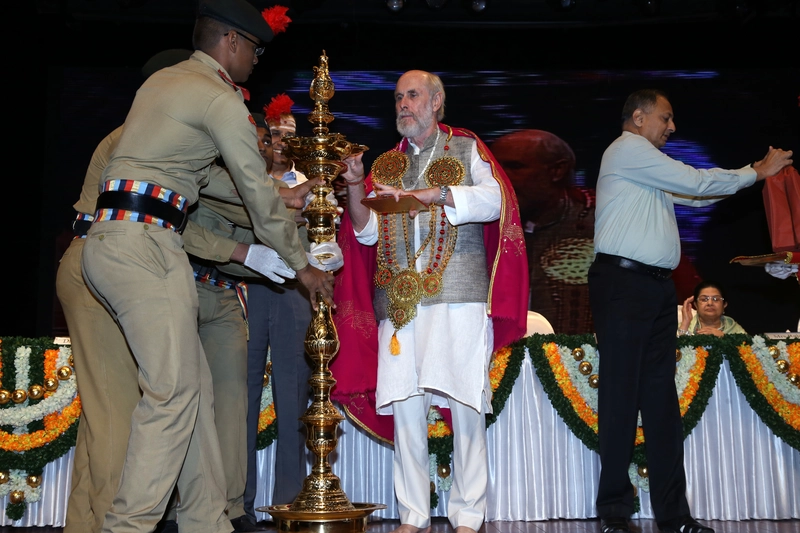
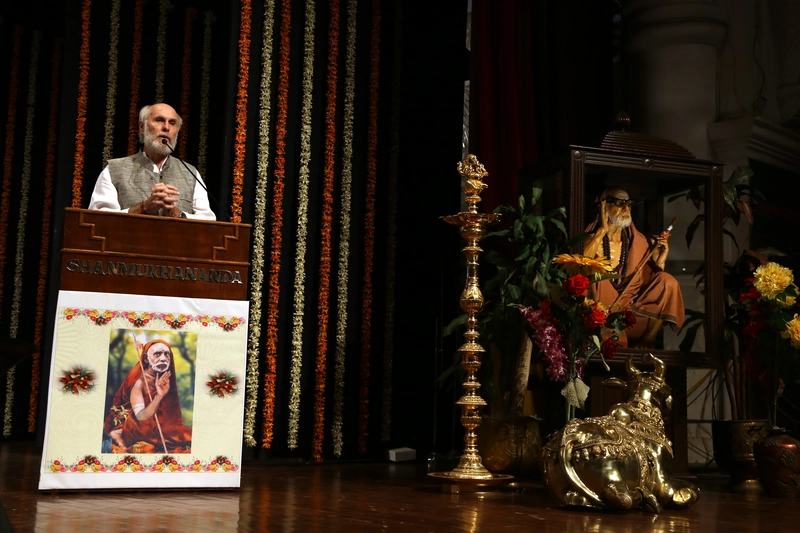
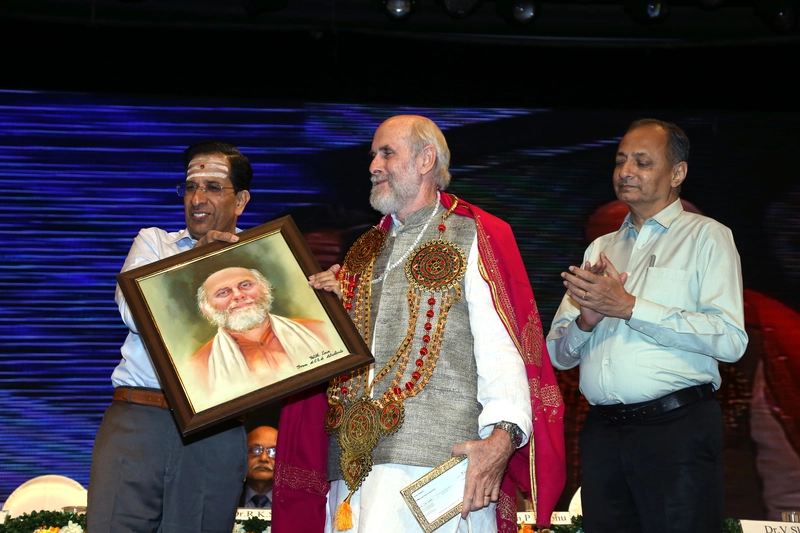
With Atal Bihari Vajpayee, Prime Minister of India from 1998-2004.
Picture with Vajpayee 2001, after Vamadeva had done a lecture tour of Delhi and several govt. agencies.
Vamadeva discussed various educational issues with the Vajpayee govt. promoting Vedic knowledge including with HRD Minister Murli Manohar Joshi
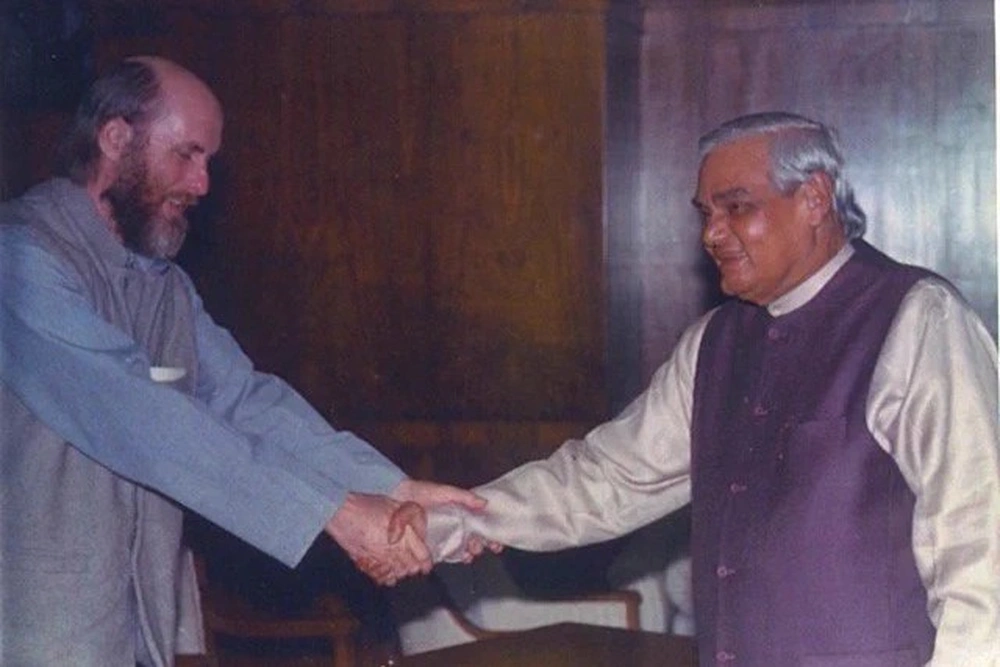
With L. K. Advani, Deputy Prime Minister of India from 1998-2004
Long time head of the Bharatiya Janata Party (BJP)
Later received Bharat Ratna, highest national award
LK Advani was the chief guest for Vamadeva’s 60th birthday in Delhi 2010
At the house of M. Venkaiah Naidu who later became Vice President of India
Main Speaker was Dattatreya Hosabale of RSS.
Organized by Sri Ram Madhav
Special gift from LK Advani who Vamadeva met on several occasions

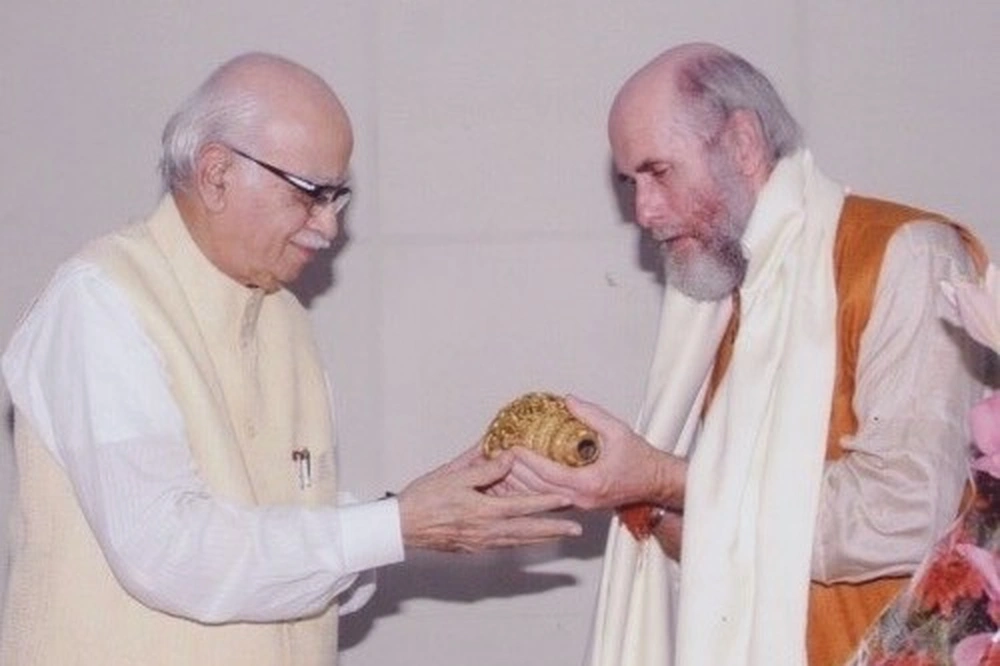
With Prime Minister Narendra Modi at his office in Delhi, Prime Minister from. 2014, current Prime Minister Today.
Dr. Frawley’s Padma Bhushan Award came by recommendation from the PM’s Office.
He also took a prominent role in the first International Yoga Day in 2015, in which he was the first speaker for the technical program.
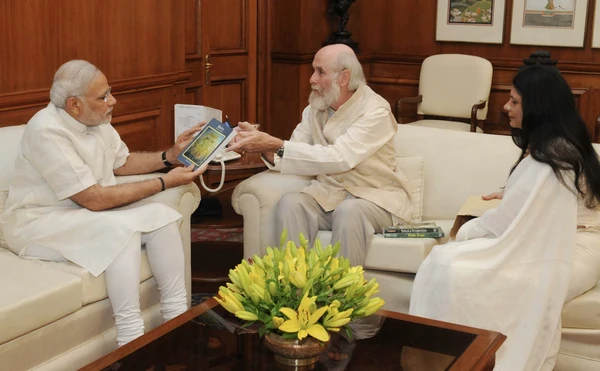
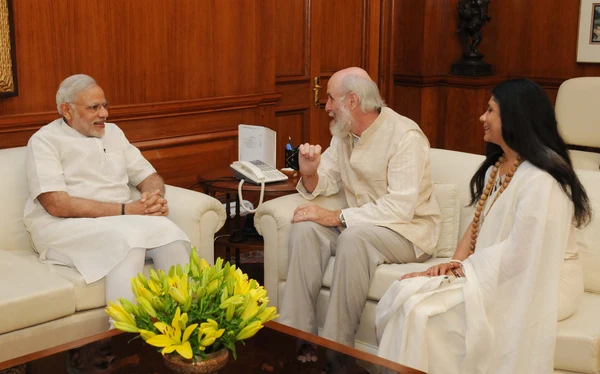
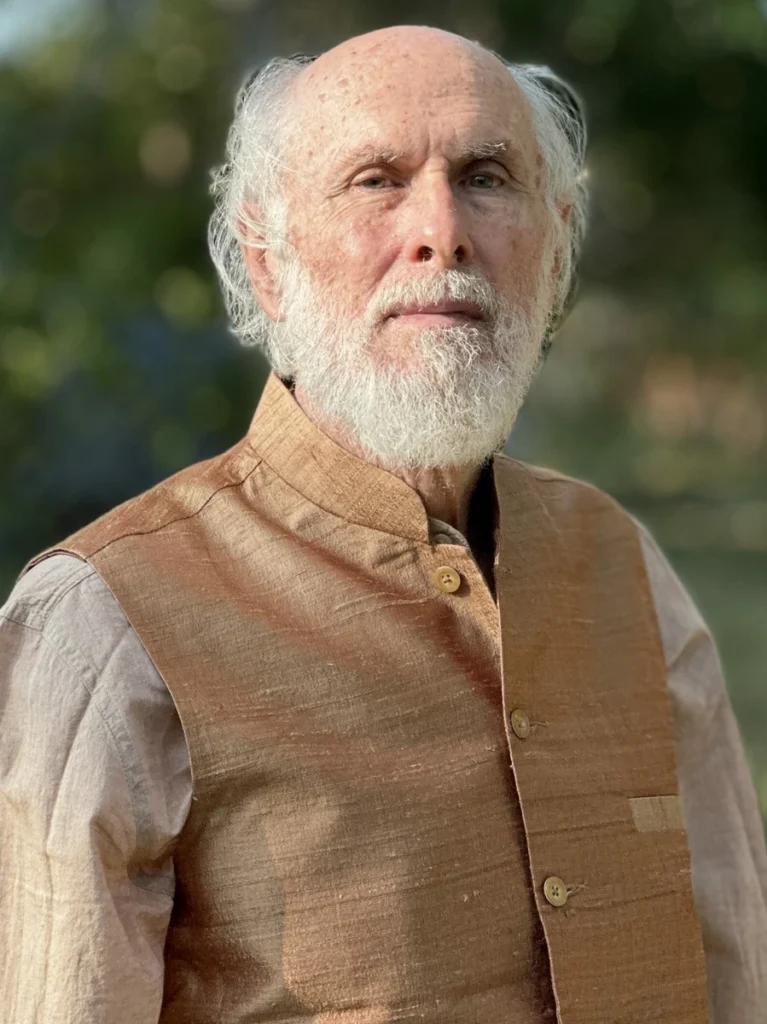
Dr. David Frawley (Pandit Vamadeva Shastri) founded the ‘Vedic Research Center’ in 1980 for his work on the Vedas since 1970 and his writings for Indian publications since 1977.
His early work of over a thousand pages on Vedic knowledge focused on the Vedas and their yogic relevance for the Sri Aurobindo Ashram, Ramanashram and Sri Sri Anandamayi Ma with whom he was in correspondence with from 1976-1982. His early work included extensive translations from Vedic texts, notably Rigveda, Yajurveda and Upanishads, as published through Sri Aurobindo Ashram.
In 1988, Vamadeva expanded the center into the “American Institute of Vedic Studies” to promote Yoga, Vedanta, Ayurveda and Vedic Astrology as Vedic knowledge systems, related to his research and publications.
Dr. Frawley received the prestigious Padma Bhushan Award from President of India Pranab Mukherji in 2015 at Rashtrapati Bhavan. He also received the National Eminence Award from the South India Education Society (SIES).
Working with the American Institute of Vedic Studies, Santa Fe NM, along with Pandit Vamadeva Shastri (David Frawley) they offer Online Courses in Ayurveda, Yoga, Astrology, Vedic Counseling and Vedic Astrology Consultations as well as Yoga Shakti retreats, Shakta teachings, personal empowerments and workshops around the world.
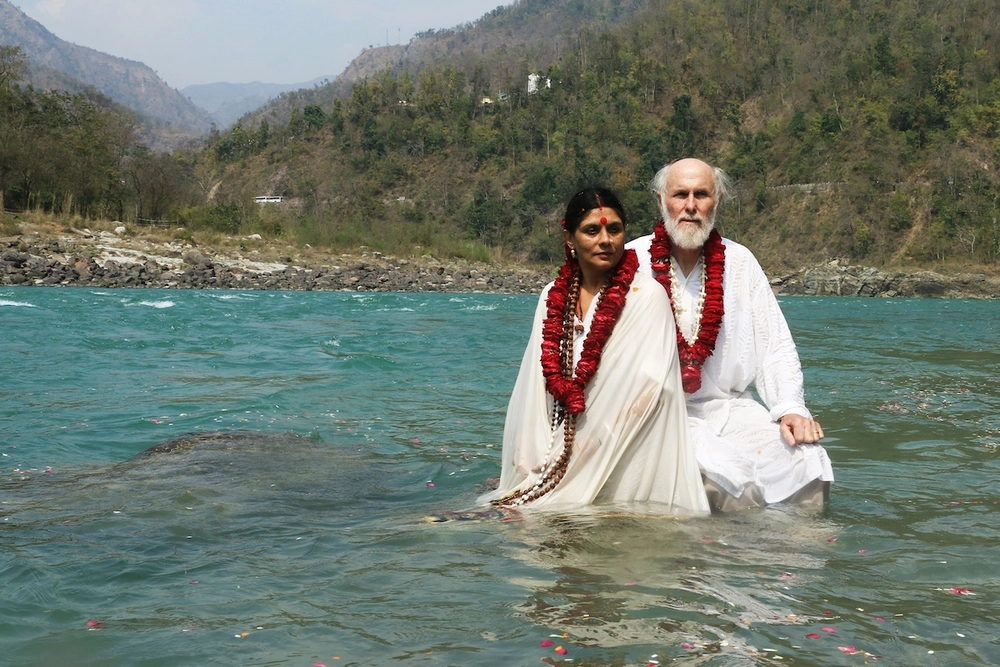
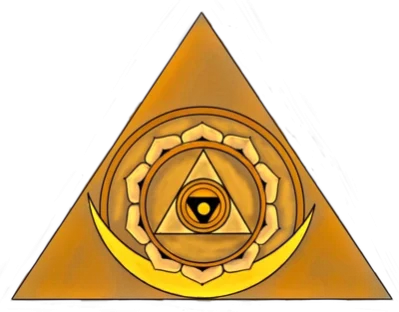
Discover the profound wisdom of the Vedic Science with over 40 books on Yoga, Ayurveda, Mantra and Vedic Astrology by Dr David Frawley.
Each book encapsulates the essence of Vedic wisdom, from Ayurvedic healing to the spiritual essence of yoga. Unlock the secrets of holistic living and self-realisation as you explore the pages meticulously crafted by these celebrated authors.
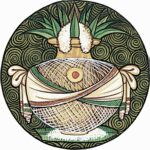

We are proud to share that Vedacharya Dr. David Frawley has been named the recipient of the BHISHMA
Yoga Nidra is a popular topic today but seldom taken to the depth that it
The Mantra to the Supreme Light, Param Jyoti Mantra, is a famous and powerful Vedic,
join our mailing list to learn about new events, articles and courses
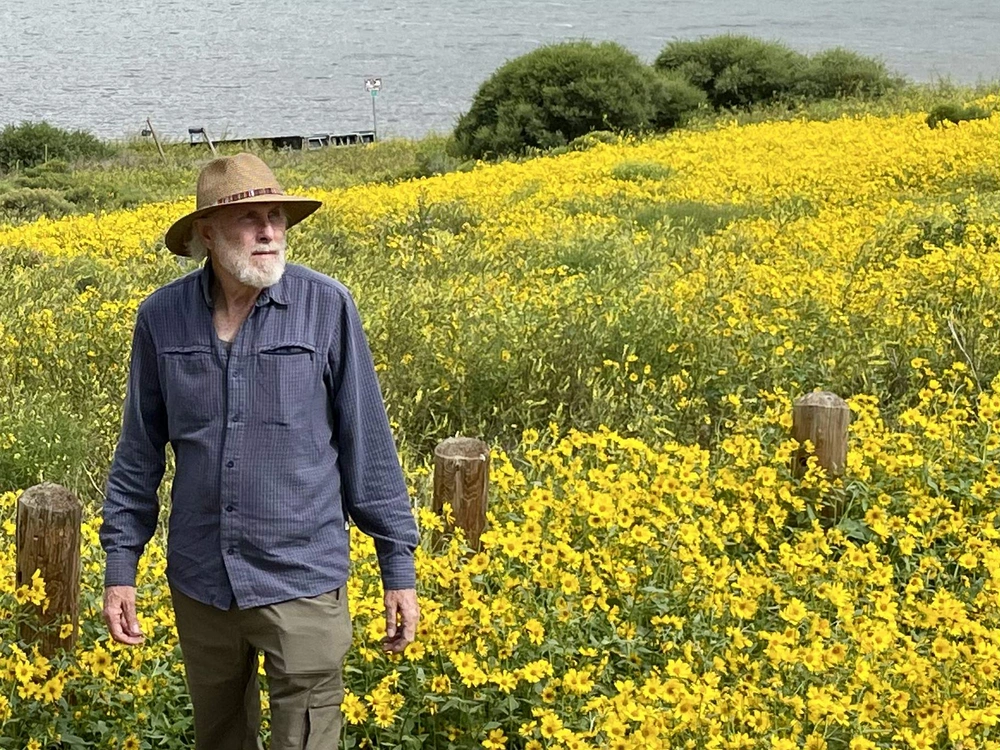
Live Webinar with Dr. David Frawley
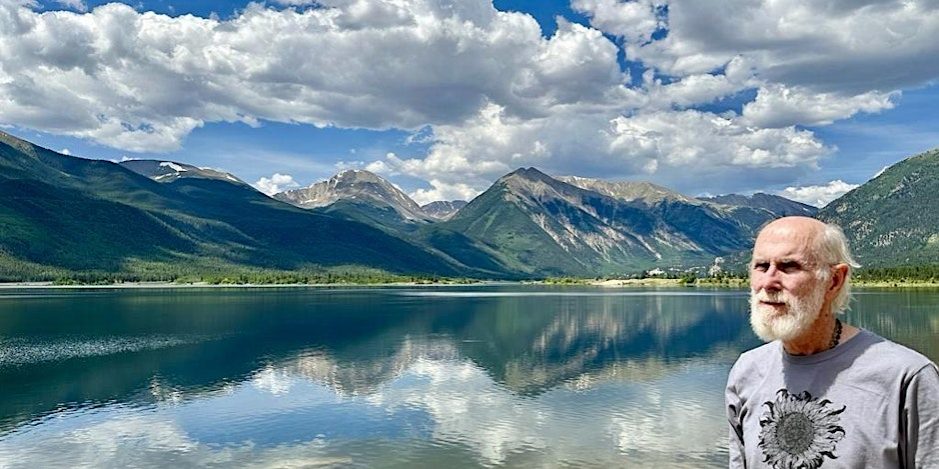
WITH DR. DAVID FRAWLEY
